Radical Transformation
For Indigenous communities
Boozhoo, indinawemaaganidog! Aaniin! That is to say hello, all of my relatives! Welcome to another edition of An Irritable Métis. This actually marks the final edition of this newsletter for 2024 which, in all honesty, doesn’t really matter, does it? It’s not a 2024 reflection piece or anything like that, even though this year will go in the books as one of the most spectacular ones I’ve ever had. Much of that I owe to the support I’ve received here among all of you Irritable Readers. What a monumental and wonderful turn of events.
You can expect the show to go on unabated in 2025; after these last couple weeks of breath catching1, once the year rolls over I’m launching into another growing schedule of public (and private) events to continue telling the story of my Little Shell people. I have zero interest in slowing down. If I have any goals for 2025 it’s to make face-to-face acquaintance with as many more of you as I can manage to. I love the road even though it is often a challenge and we will see how it goes.
Meanwhile, I encourage any of you who are able and interested to please consider a paid subscription. I’ve said it many times that this newsletter model really is a form of mutual aid and direct support for creative types in a global climate where such opportunities are shrinking2. Your generosity makes a tremendous difference in the lives of storytellers, mine included.
Friends, what follows now is a lot of words ultimately leading to a Big Announcement. The TL/DR3 version is this: two friends representing two local organizations and I are putting on a celebration in Missoula this coming August 1st and 2nd called IndigiPalooza MT. That website is only a splash page so far but more will be unfolding in the coming months; what we need to be doing now is raising money for it. Importantly, we already have a contract with our headliner: the mighty former U.S. poet laureate, Joy Harjo. More information is toward the end of this newsletter, including an opportunity to sign up for a wonderful online class called Native American Studies for Everyone, running February 10 - April 14, a pay-what-you-can-afford offering from which 100% of the proceeds will be donated to the festival. If any of this intrigues you, keep reading. Or, just skip it all and DONATE.
A couple weeks ago I arrived at the Missoula airport early for my flight south to Burbank to record the audio version of Becoming Little Shell. I poked around in the gift shop a little, mostly to sneer at all the Dutton Ranch/Yellowstone garbage being marketed to … well, people not much like me. Among the magazines I found the latest issue of Big Sky Journal. This is a glossy and beautiful regional publication that I have the deepest love/hate relationship with imaginable. On the one hand it is the absolute worst kind of real estate porn for people from out of state who have far more money than they need but, on the other, also publishes wonderful stories and magnificent photographs, often by people I am acquainted with and I appreciate that. This issue caught my eye because my friend John Clayton had published a newsletter just a day or two earlier where he described a piece he had coming out in the latest edition. This is what he had to say about it:
This month I’m publishing a major new article, “Howard Zahniser’s Wilderness Awakening,” in Big Sky Journal. You can read it free here, although as usual I prefer the stunning presentation of the dead-tree edition. In this space I’d like to give some background on how I came to the story and why I cared.
Environmental historians view Zahniser as important because in his job at the Wilderness Society, he was the primary author and lobbyist behind the 1964 Wilderness Act. This landmark legislation created a nationwide system of lands “untrammeled by man.” My story chronicles a trip Zahniser took in 1947: ten days in Wyoming’s Bighorn Mountains, in what would later become the Cloud Peak Wilderness. It was his first time on a horse.
I have a knee-jerk, dim view reaction to the relentless adulation so many folks pour over manly man white dudes in the conservation arena but I was intrigued. What caught my eye with this one, besides my enthusiasm for Clayton’s writing, is that last line: “It was his first time on a horse.” It sounds like the kind of story I would be into (nice hook, John!). So when I saw the magazine I bought a copy then sat down with a beer and read it. It’s wonderful.
I’m not going to spend any time going on about what I love about the article. You may read it HERE yourself and I urge you to. What I primarily love is all the ways that Zahniser doesn’t fit the mold of how we typically feel these rugged wilderness types should be4, and yet, because he was invited to, and took, an opportunity to experience that wilderness himself, he was so moved and inspired that he went on to be the “author of the 1964 Wilderness Act, one of the most significant advances in conservation history.5”
It is the opportunity I want to talk about. Who generally gets opportunities and who doesn’t, specifically, and where those experiences can lead. It’s the relationship to that that drives my efforts particularly as Montana poet laureate. I want to show up for people – young people mostly, primarily Indigenous, admittedly, but anyone who doesn’t feel like they “fit the mold” either of what society might seem to expect of them – as an example that one may indeed take a nontraditional approach to a calling and succeed to some degree at it. I hope that now and then there are young people who see something of themselves in me and what I have done to fuel their own desires to do what they want to do. That might be overly high-minded and self-indulgent but it’s true.
Here’s another example. As a kid growing up, I used to love Mutual of Omaha’s Wild Kingdom. I’m talking of course about the OG version with Marlin Perkins and Jim Fowler; Perkins did all the narration while it seemed Fowler took all the risks. I loved it. And, a couple generations and a few different incarnations of the show later, current co-host Dr. Rae Wynn-Grant did too. This, from a little profile of Dr. Rae on the Filson website:
Growing up in San Francisco as an urban kid, Rae’s family didn’t hike or camp. Instead, she fell in love with nature from indoors, watching nature shows. One of her favorites was Mutual of Omaha’s Wild Kingdom. As she sat watching it, she told her parents, “I want to be a nature show host.” But she didn’t know anyone who actually worked with wild animals. It wasn’t until college that she realized that wildlife ecology was actually a career track.
Grant goes on to say this:
“What helped me be more visible is that I always brought my identity into it,” she said. “I am not the traditional person who works in wildlife ecology or conservation or is a leader in this. I always presented myself as a millennial Black woman from an urban, low-income environment who didn’t go outside until I was twenty years old. I am the only black female bear biologist in the whole entire world. I’m the only person like this. But that doesn’t mean that others can’t be like this too, that there can’t be more of us.”
I love this. It is an example of someone seeing something and being inspired by it, even though she didn’t see anything of herself in it … so she went out and devoted herself to it and made a place for herself and can now be an example to other young people with similar aspirations. The importance of this cannot be understated.
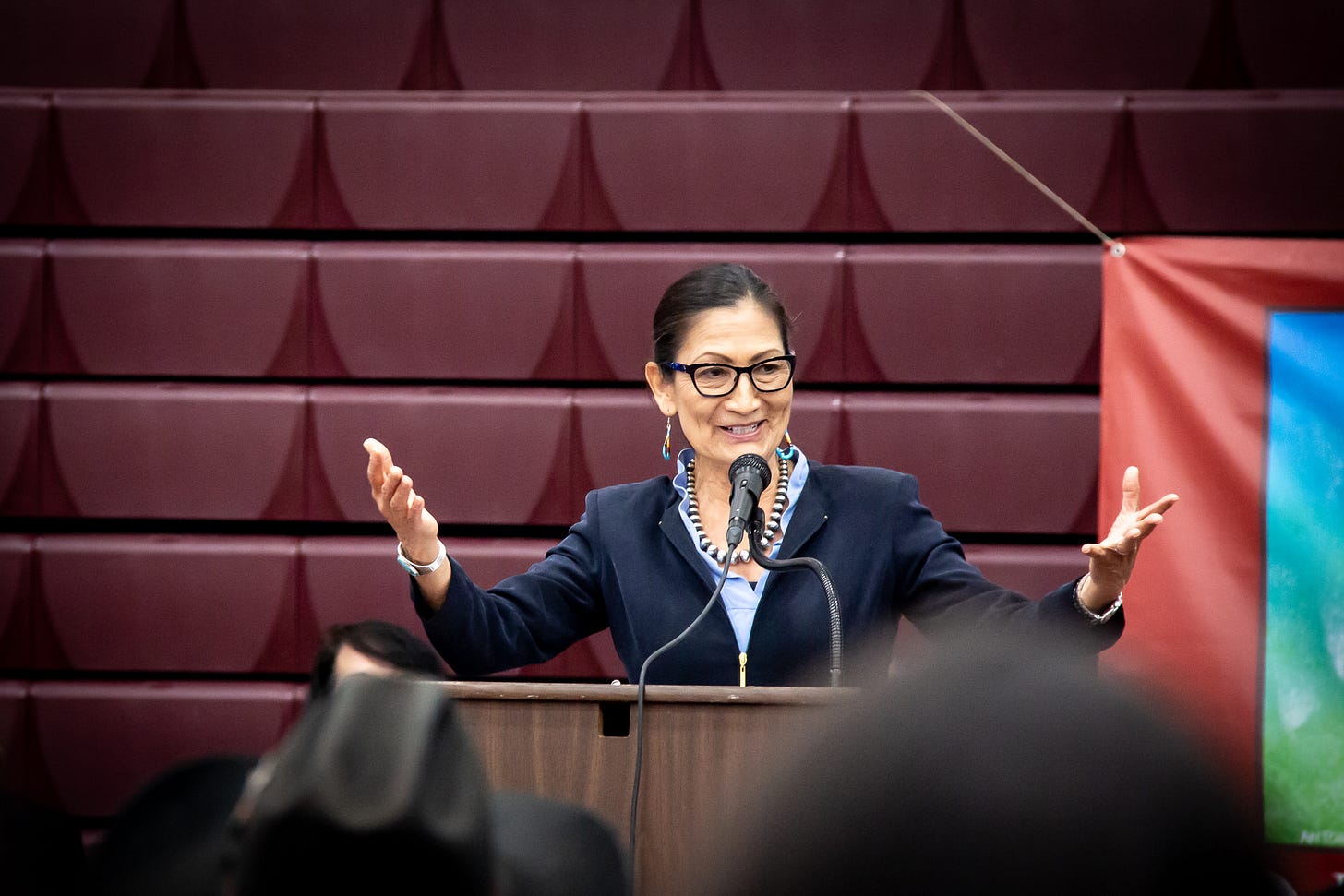
I talk frequently about how growing up as a kid with a confused Chippewa identity I didn’t see people – at least people who weren’t characters from fantasy stories I admired, like Conan the Barbarian, or Beorn from The Hobbit, or Aragorn from the LOTR – like who I wanted to be anywhere in popular culture. That has certainly changed for younger people today, whether it’s through vehicles like Reservation Dogs, or Lily Gladstone’s wonderful success, or Deb Haaland as the first Native person to hold a cabinet position in the U.S. government … not to mention the explosion of interest in Native writers and artists. Whatever the reason, people today are paying more attention to Indigenous folks than ever before, at least culturally, and I have been a direct beneficiary of it. There is no way Becoming Little Shell would have been published a decade ago. Publishers wouldn’t have been interested nor do I think readers would have been either. I am keenly aware of my good fortune to be writing in this particular place and time and I recognize my responsibility to keep that momentum moving forward.
The thing is, as people visibly out in the world doing stuff, we never know when our actions might inspire another person, or generation of persons, to take on meaningful lives simply because they saw their desires mirrored in the efforts of someone a little farther down the road that they may not have otherwise.
What my actions are capable of certainly received a boost when the wonderful people at Yellowstone Forever offered to open up a workshop I was giving last winter to Native students and teachers with the entirety of their tuitions covered. I ended up with a group of participants flip-flopped from how they are usually comprised – in other words, a vast majority of Indigenous people – and the effect on my view of how these workshops can be handled was profoundly changed. The final result was that I spent Winter Solstice of 2023 seated at a fire in a holy place with a broad mix of both Native and non-Native people sharing stories written during the workshop and it was transcendent. I vowed then that, if I could help it, I’d never do things in a way that has become typical, as in available only to people with all kinds of money and privilege, again.
Last year I appealed to you Irritable Readers to help me make that determination viable by donating to provide scholarships for Native people to participate in my weeklong workshop on the Main Salmon River under the auspices of the Freeflow Institute. Freeflow has long been my partner in providing opportunities – they offer scholarships for everything they do, which isn’t easy for such a small, grassroots organization operating in an expensive niche – so getting them on board was an easy sell. I was hoping to raise money for two participants but you folks rose above and beyond and we were able to fund five. What a triumph. What gratitude.
Which brings me to IndigiPalooza MT, or IPFEST for short. This festival is a collaboration between me, my friend Selya, who is the Community Engagement Specialist for the Missoula Public Library, and my friend Anna, who is the founder and executive director of Chickadee Community Services, an organization who also served as the fiscal sponsor for last year’s fundraising efforts for the Salmon River trip.
This festival represents a collaboration between an Indigenous organization, ME6; a critical and essential element of our entire, multi-cultural, every-demographic community, THE PEOPLES HOUSE, the library; and an organization dedicated to Indian education that, while not run by a Native person, features an all-Indigenous board of directors and operates exclusively in Native communities, CHICKADEE. The final element and, most critical, is YOU, the public and anyone who wants to see something like this succeed. For it to work, we all need to work together; none of us is capable of pulling it off alone.
What IPFEST ultimately is is a celebration of Indigenous people in many arenas. Joy Harjo is already on board – she represents the first Native person to ever be U.S. poet laureate. We have several other Native artists who have agreed to participate; we are in the process of drawing up contracts to make everything formal. There will be a panel of Indigenous entrepreneurs talking about their experiences.
Essentially, we wanted to cover as much ground as possible to provide examples to people from every demographic of what Native folks aren’t just capable of, but are actually doing, with a goal to INSPIRE.
This is all in service to the idea that providing examples – telling stories – opens doors to imagination, and to opportunity. It’s a huge project – inspired certainly by the wonderful experience of the James Welch Lit Fest from a couple years ago, but not a replacement for7. We are in the early stages of putting it all together and need to get moving on funding the whole thing. I haven’t revisited the official budget yet8 but the napkin in my head has $100k scribbled on it. We intend to cobble together funding from as many sources as we can; grants, corporate-ish sponsors, and – this is where you come in – individual and enthusiastic donors.
This press release from NDN Collective came out two weeks ago. The TL/DR version of it is that, as in so many things, the massive abundance of money being tossed around by philanthropists is lagging behind as it relates to Indian Country. The press release is well worth reading on its own, but also contains a link to the actual study. I urge the interested to check that out too. It’s telling and, sadly, not surprising. I mention it here because we have already encountered some hurdles related to this mindset and we absolutely will overcome them. I’m also one with more faith in people outside of the structures of the dumpster fire that is our Funding Industrial Complex. For example, if as many of you donated to this effort as you did for my Salmon River adventure last year, that would represent nearly 20% of our need. That’s huge. I hope you will be with me again this year. Please consider a donation.
This isn’t the last you’ll hear of this. It’s only the beginning.
And Finally….
Here’s a great way to donate and also learn a lot about Native people: sign up for Chickadee’s Native American Studies for Everyone course. It’s entirely online and it’s excellent. This will be, I believe, the third iteration of this course. The first two were exclusively for teachers, which is interesting especially in light of this brand new op/ed from Truthout called, “Teachers Turn to Study Groups for Anti-Racist Learning as History Is Whitewashed.” You may read it HERE. In Montana, teachers are constitutionally mandated to teach Indian Education for All, yet really aren’t provided many resources for doing so, though that is changing. That’s where Anna’s Chickadee class was born from. Now it is being offered to everyone because who ever did receive this kind of education? I think it’s important and I am very grateful to have a small role in it.
I mention it because, as noted in the beginning of this long-winded newsletter, anyone who signs up for the class will see their entire donation routed to IPFEST. It’s a win/win, really. I hope a pile of you sign up. It’s whatever you can afford, but you need to do so by January 31st. Please consider it!
We are all in this together, this being creating a world that will be habitable by those to come after us. We need our entire community working together, and that can’t happen without reckoning with where we’ve been.
Miigwech, my friends, as ever, for hanging in there with me. There’s a lot coming our way and I’m grateful to have so many of you here. As a final reminder, here are a few of the important links from this newsletter:
Teachers Turn to Study Groups for Anti-Racist Learning as History Is Whitewashed
Preorder Becoming Little Shell: A Landless Indian’s Journey Home on audio
… and doing my best to be difficult to reach, and trying hard not to think too much about taking on new projects, accepting invitations, and etc.
My freelancing “career” has been in freefall for three years. In fact, though I can’t say I really tried either, I didn’t make a penny freelancing in 2024.
TL/DR is shorthand for “Too Long, Didn’t Read”, which I mention in fear some of you may look at the sea of text following the intro and decide I’m not nearly interesting enough to wade through all of that….
For example, in her wonderful book, Coyotes and Town Dogs, my friend Susan Zakin refers to these dudes as “hairy-chested Western writers” or something like that, which is perfect.
I can, and do, gripe endlessly about some of the language in the Wilderness Act but it truly is essential and we are fortunate to have it.
A vertically-integrated self-contained writing system, to be specific.
Please don’t ask me the status of this. I get asked all the time and I don’t have any answers. I hope it makes a return someday.
Of course there is one.

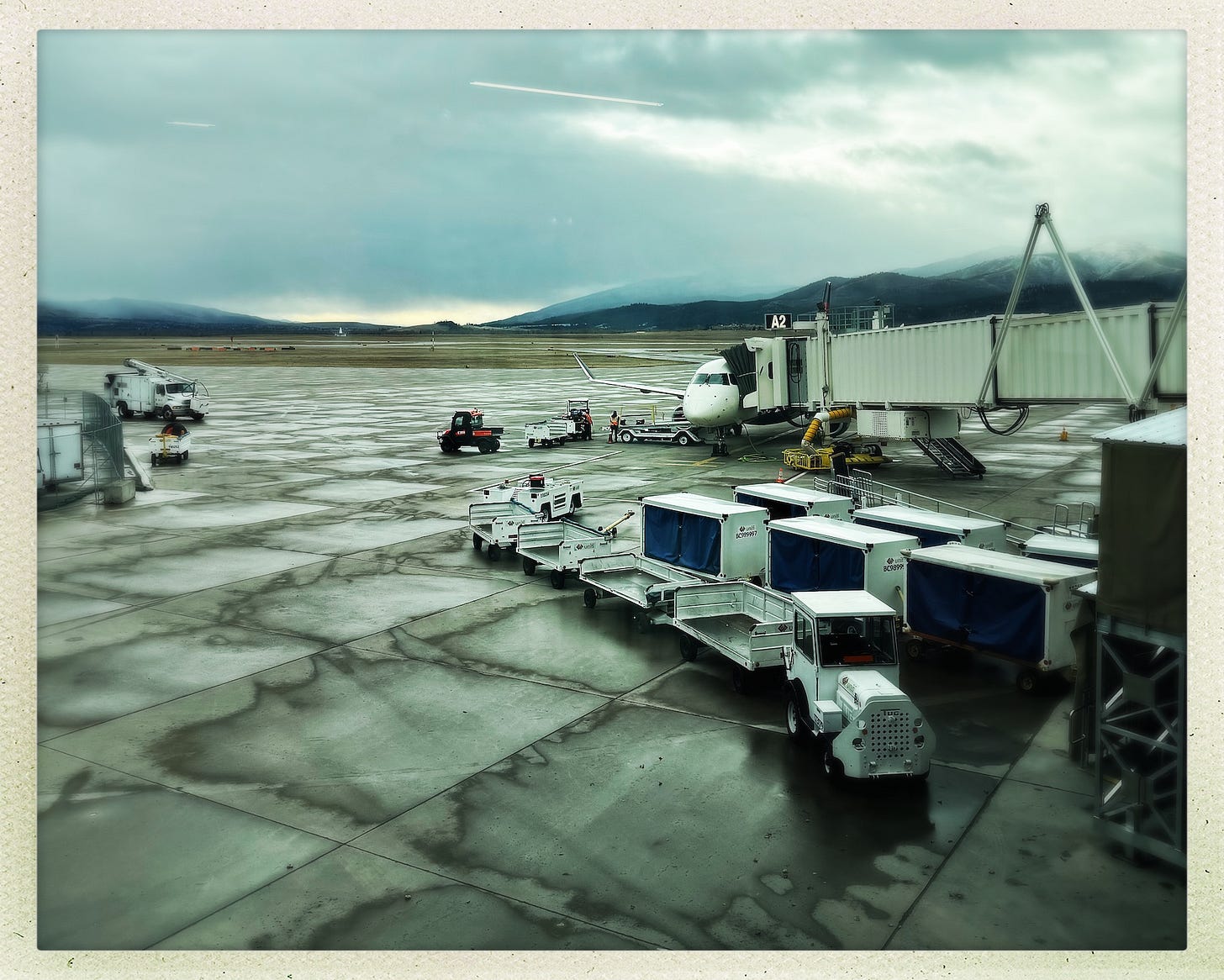
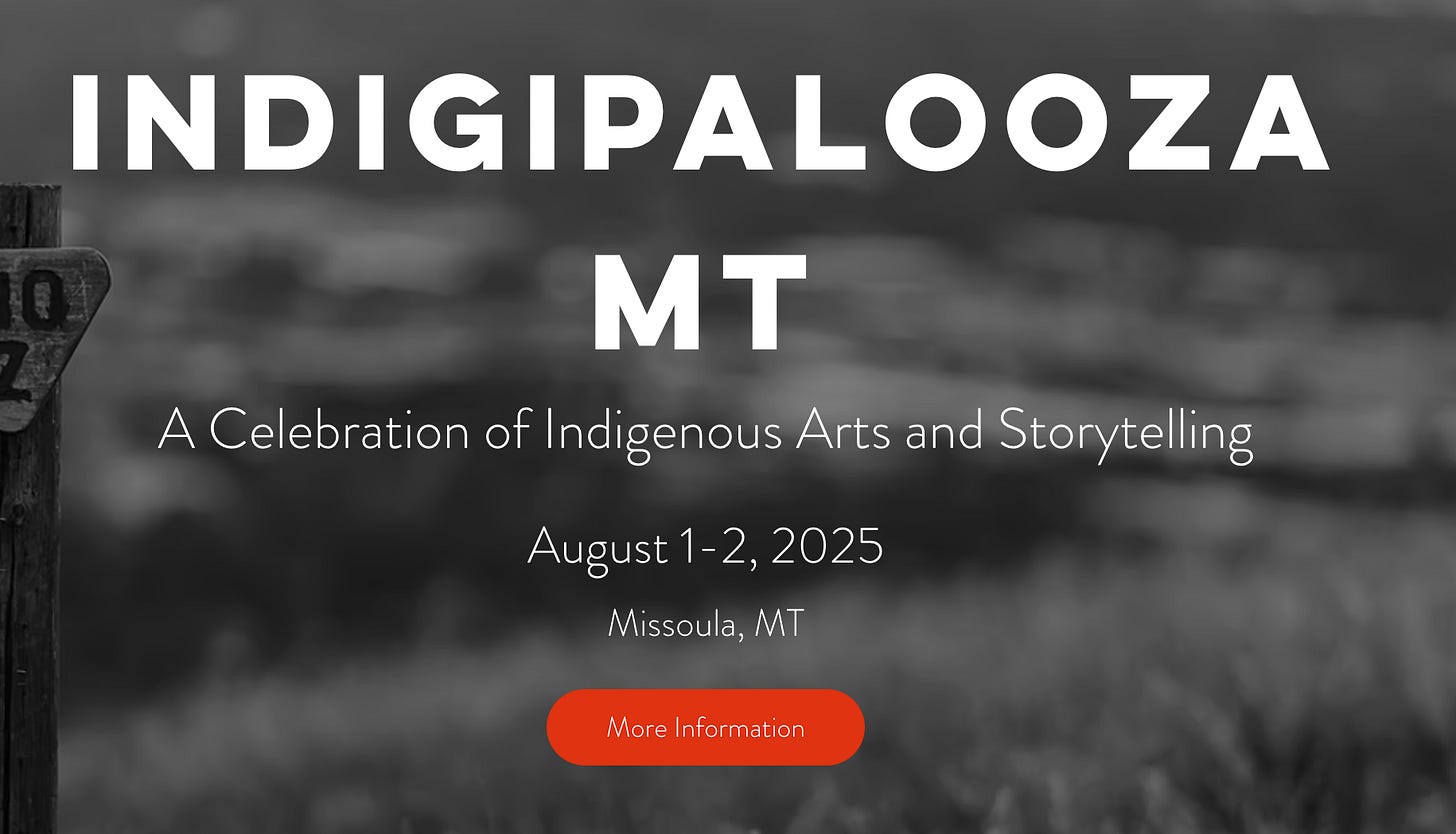
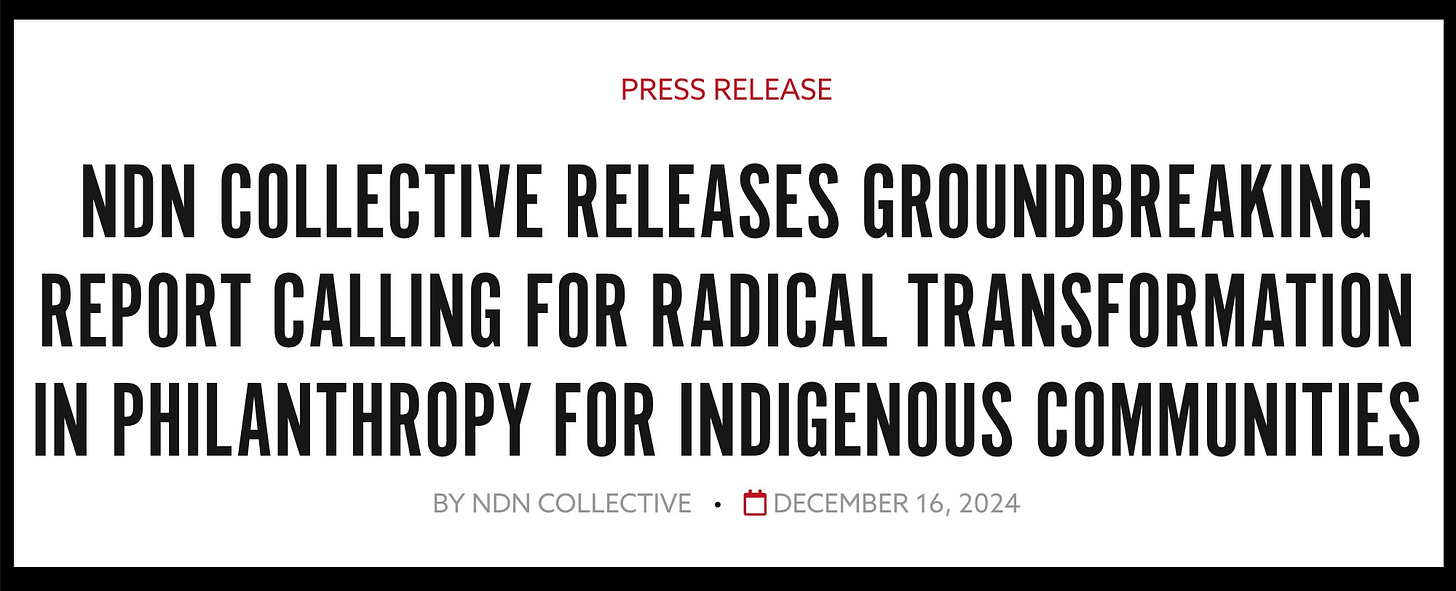
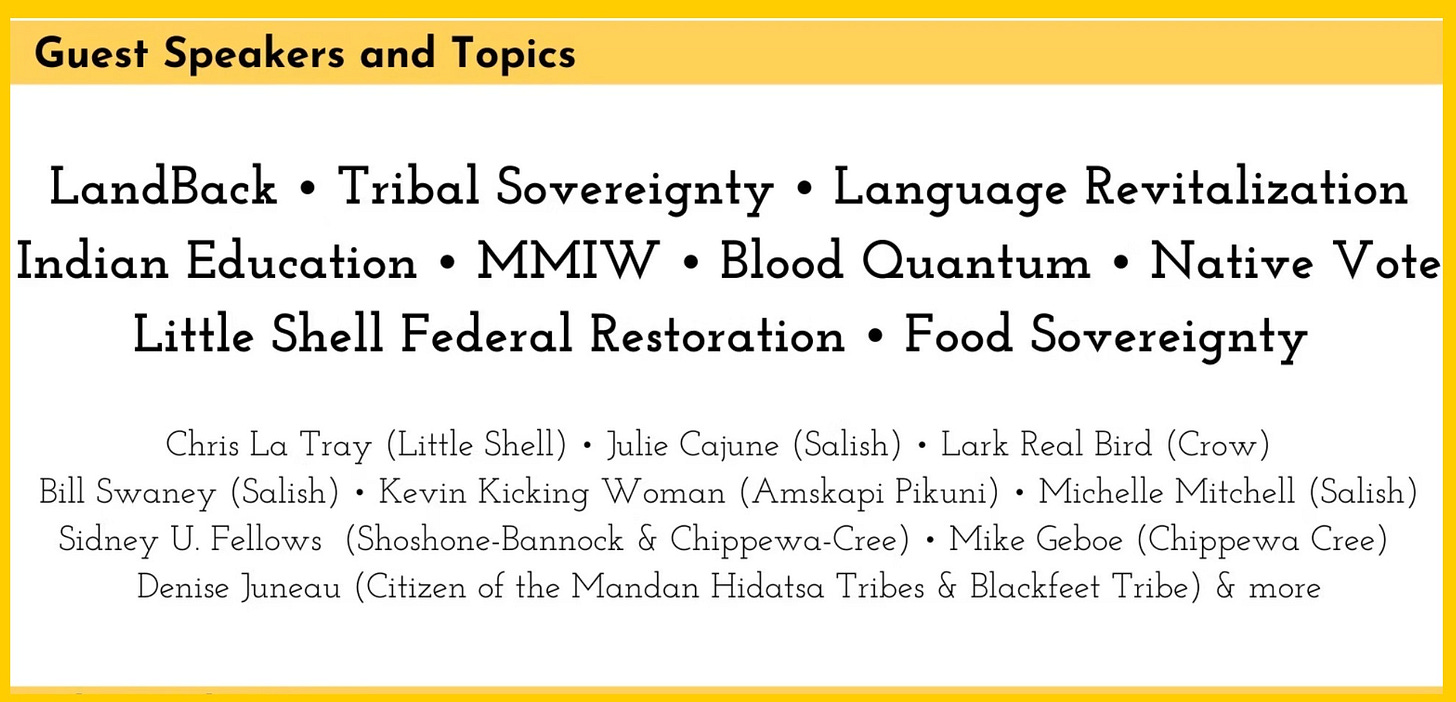
My jaw just keeps dropping in awe and excitement for you. I would love to be involved in IndigiPalooza in some way, even if it’s just donating native seeds to give to speakers or something. So exciting and motivating to see you doing allllll the things. You’re doing the good work that is so desperately needed. 🖤
Boozhoo/Wingapo, Chris,
I donated a little to both IPfest and Chickadee. I’m really excited to know where to donate, since, as you say, there are not many clear options.
I’m looking forward to IP fest as well.
Finally, I’ve cast around my whole life looking for information on my own indigenous background. Meeting you last spring when you came to my school, and reading your book has inspired me to try again for more information on my tribal heritage. Though I found out that the language is officially extinct, I also learned that the tribe is working with linguists to bring back what they can.
I am grateful to you in so many ways, big and small, but mostly for being a part of refinding my path to my own heritage.
Miigwech/Kenah,
Kia Mathews